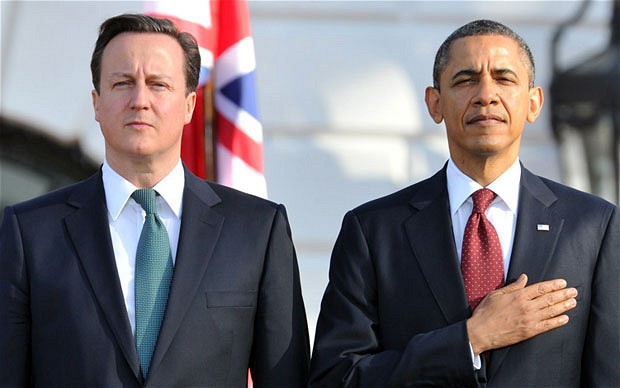
Eurosceptic attacks on Barack Obama's pro-European comments are misjudged, says Business for New Europe.
When you can’t attack the message, attack the messenger. It’s an old political tactic, utilised today by Business for Britain in an article today in City AM. The message was that Britain is better off in the EU, and the messenger President Obama. The President told the BBC that Britain’s place in Europe “gives us much greater confidence about the strength of the transatlantic union”, and helps make the world “safer and more prosperous.”
Most British voters will take this in the spirit it was intended – friendly, sincere advice from the leader of our country’s most important ally. Not so the Europhobes of Business for Britain. The article began: “Voters! Hold-up! Stop worrying about that pesky decision about what our future relationship with the EU should look like. You don’t need to worry about exercising your democratic right in the UK, the President of the United States wants the UK to stay in the EU come what may. Phew, glad that’s settled.”
The simple fact is that Britain gains influence from our membership of the EU. Anti-Europeans contend that we would be better off outside, as we would regain a seat on certain international bodies and repatriate powers from the EU. The second point is meaningless – the EU’s foreign and defence policies are controlled by, and are accountable to, national governments. The UK government controls its own foreign policy, and the EU has only has much reach as we allow it to. As to the first, reducing the complexity and seriousness of foreign policy to having a national seat at the World Trade Organisation is absurd.
The EU multiplies our power in the world while preserving our freedom of action. Look at the recent nuclear deal with Iran. Negotiations were led by the EU High Representative for Foreign Affairs, meaning that Britain was effectively represented at the table twice. Or consider Operation Atalanta, the EU mission, led by a British admiral, which has successfully cleared the Horn of Africa of piracy. Or the Ebola epidemic in West Africa, where the EU worked hand-in-hand with active member states like Britain to drive back the advance of the disease.
Being in the EU strengthens Britain’s partnerships with its traditional allies. The EU is currently negotiating a free trade deal, TTIP, with the US, a measure Britain has long pushed for. No European country trades more with Canada than Britain – and Brussels has now completed a free trade agreement with Ottawa too. In 2013, the Australian Foreign minister said: “Australia recognises the UK’s strength and resilience and looks forward to seeing it continue as a leading economy and effective power. Strong active membership of the EU contributes to this.” Europe, the United States and the rest of the Anglosphere hold certain vital values in common – democracy, tolerance and respect for human rights amongst them. Cutting ourselves off from Europe would do nothing to rejuvenate our other international partnerships.
Anti-Europeans think that President Obama should have kept out of a British political debate. But what is odd is that they presume to understand American interests better than the President himself. “Anti-Americanism is still prevalent in Europe”, the article says, pointing to lack of progress on TTIP and Brussels’ antitrust actions against American companies. It is true that the European Commission has taken action against Google, but just this week it fined French energy giant EDF €1.3bn. Does this make the EU anti-French? And the fact that TTIP is a top priority both for Brussels and most member state governments suggests that anti-Americanism is hardly a reason for any delays in the negotiation process.
Unable to resist throwing an elbow, the piece concludes by accusing “prominent pro-EU campaigners in the UK” of anti-Americanism. Business for New Europe does not of course speak for all pro-EU opinion, but our supporters include an American banker, the British arm of an American company and a former British ambassador to Washington. Trying to make a weak point by accusing your opponents of xenophobia is just cheap.
President Obama said that Britain was America’s “best partner.” There is no doubt, on either side of the Atlantic, that a significant part of the closeness of the relationship is based on Britain’s place in Europe. If eurosceptics are as committed to that relationship as they claim to be, they would listen carefully to the President’s words, rather than dismissing them out of hand.
